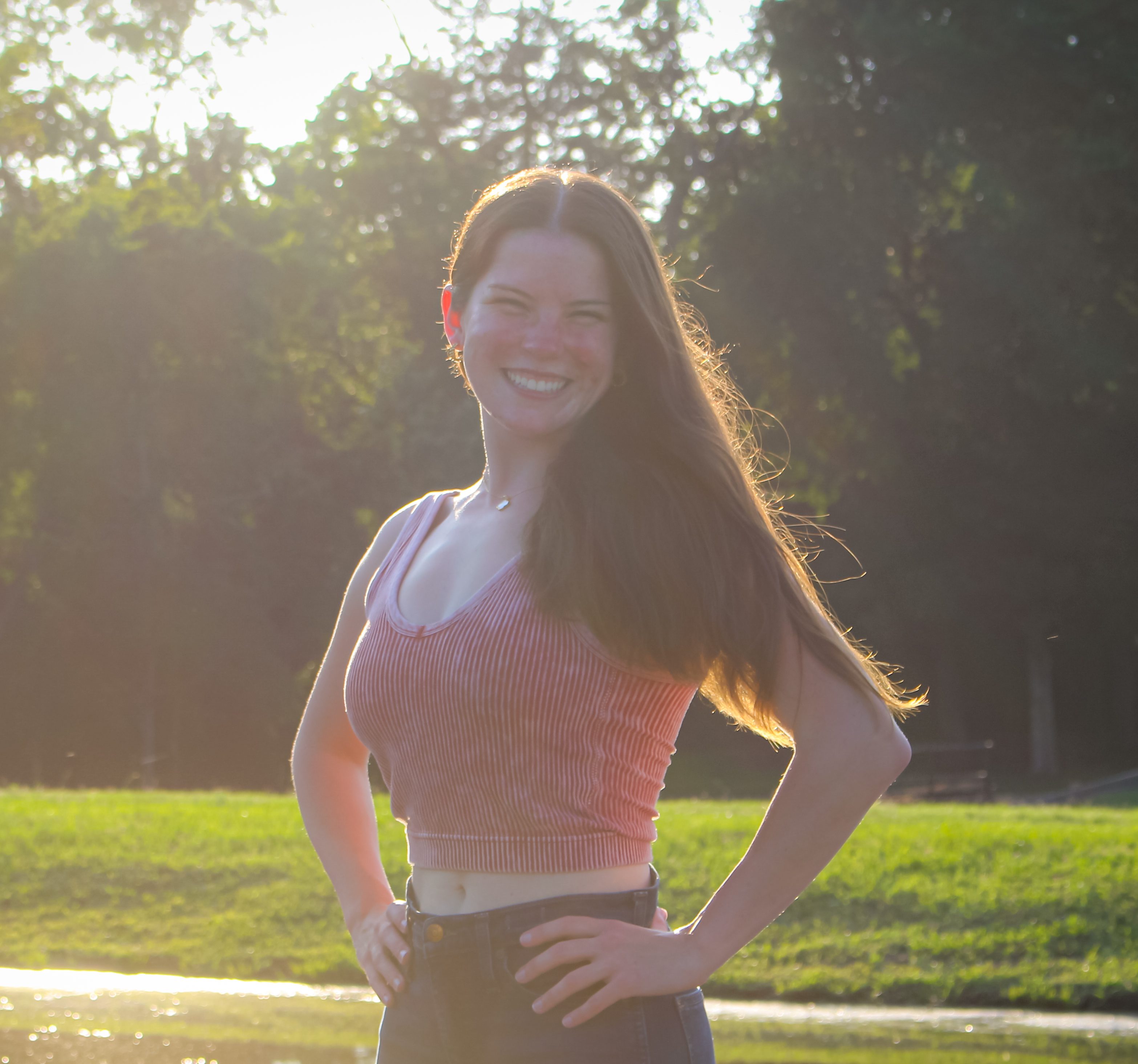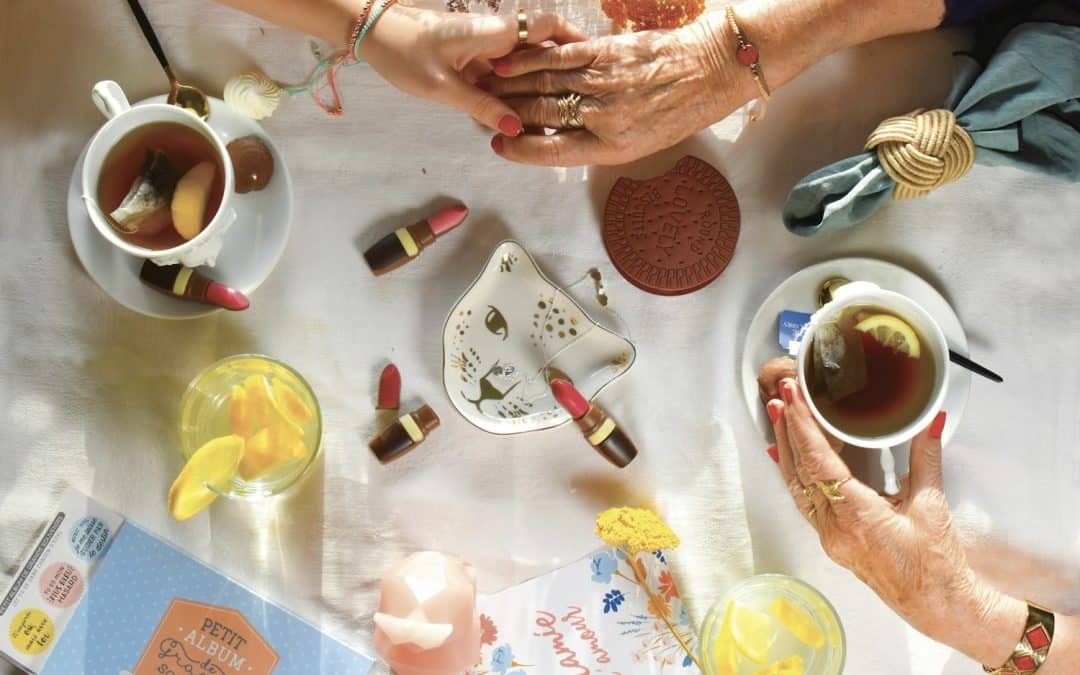My Grandmother is one of my best friends and biggest role models.
Even when separated by distance, she’s always been by my side. She has shared my joy and shed tears with me and knows my secrets. She’s always given me a space to talk, and she listens with open ears.
She reminds me how brave I was for going to a new school during my freshman year of high school to study performing arts, which was something so different from what I was used to and what anyone else in our family did. In college, I struggled with extreme emotional stress and health issues, oftentimes wondering if I could graduate. She was my biggest cheerleader, pushing me to keep going and believing that I could do it. To this day, she reminds me of the accomplishment of graduating.
She reminds me of my beauty when I don’t think that I’m beautiful.
Each year, she made an effort to attend my school’s “Grandparents and Grandfriends Day,” always flashing a smile and making friends with all who met her.
When we would go on walks around her neighborhood, she’d charge ahead at twice my pace, even though she used a walking stick to support herself, bounding ahead of me as I panted, “Hold your horses, Grandmother!”
While I know she’s in some pain, she’s the healthiest 90-year-old I know. Never once have I heard her complain about her health, and from her bright smile, you’d never guess she had anything wrong.
When I was growing up, she’d bring her boombox to my family’s house when she visited. She listened to audiobooks while my sisters and I ran around like little maniacs, screaming and playing. All the while, she wouldn’t even bat an eye but just listened intently to her book.
For hours, she would drive me through Oklahoma to my cousins’ house, playing intense classical music while she twirled her fingers to the sounds of the flutes and clarinets. At the time, I couldn’t stand classical music because I was a teenager and wanted to fit in with the music everyone else was listening to, but through my grandmother, I grew to love classical music.
She gave me the confidence to study engineering and not fear the stereotype of not fitting in. She earned her doctorate in math when it was a completely male-dominated field. I knew that I could do it, too, because she did it.
At family reunions, she tells the same funny stories from her life and her kids’ lives that I’ve already heard ten times, but I laugh along genuinely because I love hearing them again and again.
I spent many of my spring breaks in Oklahoma with her. I couldn’t have cared less about soaking up the sun on the beach and partying with the other college students; I just wanted to soak up every ounce of wisdom from this incredible woman.
Oklahoma was never my favorite place in the world because I thought it was boring, but there is never a dull moment with her. When I did complain about being bored, she came back with a sarcastic, “If you’re bored, then you’re boring.” Her biting wit rings true to this day.
If I took a nap on her couch, she would wake me up like a boot camp drill sergeant after 30 minutes and tell me I needed to get on with my day, that there was so much I needed to accomplish. No moss ever grows under her feet.
When I struggled emotionally, I would often call her five or six times a day, and she would pick up the phone every single time, even though it always took a bit for her to adjust her hearing aids. She would break a complex problem down into smaller steps, helping me set goals, and say, “Go accomplish this task first. Go unpack one box. Then, call me again, and we’ll set the next goal.”
She is busier than I am — constantly on the go, meeting with friends, playing bridge, and attending church. Regardless, she always picked up the phone to be sure I was okay and told me she’d call me after the game. She’s never not picked up the phone or returned my call almost immediately. Her only caveat was, “Don’t disrupt my sleep because that would be rude.”
She has taught me much about love. She says if we dare to love, we will be hurt, and vice versa. The human experience is full of love and hurt, but she has always chosen to love.
Whenever I had a calculus question, she would answer it for me, even if she had to dust off old textbooks and spend hours refreshing her memory on the intricacies of derivatives and integrals.
She has a heart for helping others, tutoring students for free, and offering her home to those in need.
She knew that I stopped dancing after growing up with it as my favorite passion. She took me aside and said, ”Natalie, dance around your apartment without a care in the world; no one’s watching you.”
She gave me the courage to stop caring so much about how others perceive me and said, “If someone doesn’t like me, that’s their problem.”
She helped me stop worrying about being criticized: “The only way to not get any criticism is to do nothing at all.”
She suggested I keep a notebook of the names of all the people I meet at work, along with some positive identifying qualities about them. She told me to wear a big smile and call people by their names; it makes them feel seen and loved.
So many times, I’ve found myself at home crying, terrified of my grandmother’s impending death. It’s so scary imagining her being gone. I wonder how I will handle it. I know it will be like a piece of my heart has been ripped from me. I’ve saved all her voicemails, knowing that at least hearing her voice will be a connection when she’s gone. Sometimes, I’ll even intentionally let her calls go to voicemail just so I can have one more little memento of her.
I know we will make many more memories together while she’s here. She is my best friend. I love you, Grandmother. Happy 90th birthday!

Photo by CadoMaestro on Pexels
Guest Post Disclaimer: Any and all information shared in this guest blog post is intended for educational and informational purposes only. Nothing in this blog post, nor any content on CPTSDfoundation.org, is a supplement for or supersedes the relationship and direction of your medical or mental health providers. Thoughts, ideas, or opinions expressed by the writer of this guest blog post do not necessarily reflect those of CPTSD Foundation. For more information, see our Privacy Policy and Full Disclaimer.

My name is Natalie, and I am a survivor of about 13 years of absolute psychological torture from Complex PTSD symptoms. For the longest time, I thought I was inherently sick and broken beyond repair. I spent over a decade running around in circles in the medical system trying to figure out what was “wrong” with me and how to “fix” it.
♡ What is Complex PTSD? ♡
Complex PTSD symptoms come from severe, prolonged, and numerous incidents of trauma, typically of a relational nature. Symptoms can come from any type of trauma, though, and the trauma doesn’t necessarily have to stem from childhood — adults can develop CPTSD as well. Trauma can damage the brain and shrink the hippocampus, causing many of the symptoms of CPTSD. I decided to go public with my story to be a voice for the voiceless. There are too many survivors being told CPTSD is a lifelong sentence, and they are not being given the tools they need to overcome their symptoms.
♡ My Story ♡
I endured multiple types of traumas starting at around age thirteen, including numerous situations of both individual and large-group interpersonal cruelty. Some of these situations forced me to switch environments. My body couldn’t fathom what was happening, and my nervous system shut down. I saw danger everywhere, operated in a panicked survival mode, and lived in fear, anxiety, and isolation. I did my best to appear “normal” on the outside, keep a smile on my face, and control what was happening on the inside, distracting myself with extreme workaholism and doing nice things for others. I took active steps to keep branching out in confidence again, but these traumas kept piling onto each other and overlapping. I wasn’t ready to give up yet, though, because I knew my family and friends would be distraught if I did. The most difficult and heartbreaking part of my story is that the two communities I set out to seek healing in—religion and the medical system itself—caused further trauma when some religious leaders, congregation members, and medical professionals chose to take advantage of my vulnerability for their own motives. In most of these situations, I didn’t even realize I was a victim until outsiders pointed it out for me and that my vulnerability made me a target of malicious people. Each future situation of being targeted was just salt on the wound of the original incident.
♡ My Struggles to Find Answers ♡
What I went through all those years was so severe, and my symptoms and physical body reactions as a result were so excruciating that I went as far as to see a neurologist, concerned that my symptoms were the result of some sort of nervous system disorder. However, he returned with no paperwork in his hands to inform me that there was nothing wrong with me but that I was simply completely traumatized, and my body reacted accordingly. I finally realized that my symptoms were not the result of an inherent mental or physical illness and began to take a trauma-based approach to my healing after many years of believing that I was “sick” for the rest of my life. My true progress began when I finally rejected the lies that were told to me that I would have to manage my symptoms for the rest of my life and made the decision to believe that I was fully capable of healing from my excruciating pain.
♡ Finding My Own Healing ♡
I am excited to share tips for natural, somatic, and holistic healing that have helped me overcome things like dissociation, flashbacks, sleep challenges, anxiety, hypervigilance, and more. I began to pursue unique methods of healing after many years of not seeing much progress through westernized care, and this was the catalyst for fast-tracking my healing. I aim to help survivors overcome their feelings of self-guilt, blame, and humiliation and help them realize that their bodies had normal reactions to abnormal situations.
I’m so glad I didn’t give up when my pain felt unbearable. I know what I’ve survived. I know the work I’ve put in to overcome it. I am finally living a life of consistent peace and contentment, and I am sharing my story from the other side. I hope to encourage other survivors that there was never anything wrong with them to begin with and that they are capable of living healthy, happy, and fulfilled lives. I aim to live my life in love of both others and myself, understanding that everyone has a story of their own. I am grateful to the CPTSD Foundation for giving me an opportunity to share my story.
♡ Personal Blog ♡
To learn more about my healing journey, please visit my personal blog, “Little Cabin Life,” at:
littlecabinlife.com




